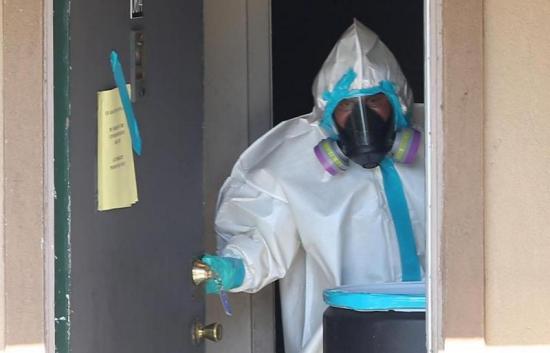BOSTON GLOBE by Felice J. Freyer Jan. 3, 2015
The threat of Ebola over the last several months tested the nation’s ability to cope with an unfamiliar disease, raising troubling questions about what will happen when the next dangerous new germ arrives on US shores.
A worker sanitized the apartment where Ebola patient Thomas Duncan lived before being admitted to a Dallas hospital.
After Thomas Eric Duncan was misdiagnosed in a Dallas hospital and later infected two nurses with the deadly virus, government agencies and hospitals around the nation responded quickly to prevent another such incident. But it took that calamity in October to trigger measures that, critics say, a well-prepared system would have had in place....
The United States lacks a central authority and coordination among a constellation of federal, state, and local agencies, said Dr. Irwin Redlener, director of Columbia University’s National Center for Disaster Preparedness. In the United Kingdom and Canada, he said, national health systems permit the federal government to designate Ebola hospitals and to set clear, mandatory protocols.
Recent Comments